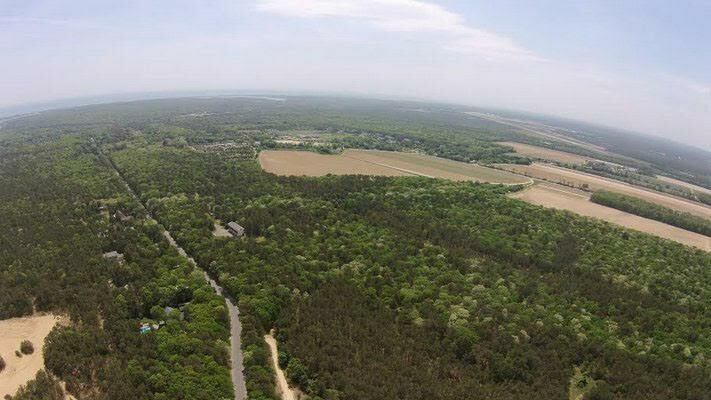
Discovery Land Company, the developer of an East Quogue mixed-use residential development featuring a golf course, first known as “The Hills,” has prevailed in a December 15 ruling in Suffolk County State Supreme Court in a $100 million lawsuit against the Southampton Town Board filed in 2018.
The implications are still coming into focus, said Southampton Town Attorney James Burke, but the town almost certainly will appeal the decision, he said, while also stressing that “it’s worthwhile to speak with [Discovery] to see if there’s any room for a global type of settlement.”
That would have to involve a Southampton Town Board with three new members sworn in this week. The issue is complicated by the fact that after The Hills proposal was rejected, the developer pushed ahead with a new proposal around the same time it filed the lawsuit.
“Keep in mind that it’s being built,” said Burke.
The suit hinged on votes by former Town Board members Julie Lofstad and John Bouvier, part of a 3-2 vote in 2017 that rejected a proposed zoning change that would have paved the way for the proposed luxury golf course resort community.
The project then reemerged as the Lewis Road Planned Residential Development.
Lofstad and Bouvier were accused of casting “illegitimate” votes by the law firm Sive, Page & Riesel for their rejection of the proposal based on their view of the environmental impacts of the proposal.
As The Southampton Press reported at the time, the Arizona-based Discovery Land Company spent years pitching and revising its project as a planned development district, or PDD, a now-defunct planning tool that allowed for a change of zone in exchange for community benefits.
The proposal sought the Town Board’s approval for the PDD to build 118 luxury housing units and an 18-hole private golf course on about 600 acres. But the Southampton Town Board rejected the zone change proposal. One of the proposed community benefits at the time was for limited public access via memberships and dedicated public tee times at the private golf course.
The suit challenged the votes cast by Bouvier and Lofstad, and Judge Carmen Victoria St. George agreed in the mid-December ruling with the plaintiff’s claim that their votes were an “intentional abrogation of their legislative obligation to vote in accordance with the binding Project Findings Statement,” and that, according to the lawsuit, “their votes were cast for the illegitimate purpose of assuaging a loud and vocal minority of project opponents.”
The lawsuit asked that their votes against the PDD be overturned, that the town pass a local law to allow the development, and that the town pay at least $100 million in damages.
Around the time it filed the suit, the developer initiated a new process with the town’s Planning Board for an as-of-right development on the same land and said it could build the private golf course without securing a change in zoning.
The original application would have allowed for limited public access to the proposed golf course, which was not part of the subsequent proposal following the rejection of The Hills application.
The underlying issue here was a requirement that the developer provide some sort of “community benefit” that would extend beyond the residents in exchange for the zoning change. Another community benefit that was scrapped between The Hills and the Lewis Road PRD proposals would have preserved a tract of land that’s part of the Parlato property located at the headwaters of Weesuck Creek.
The court ruling means that those community benefits that were part of The Hills proposal may be back in play, said Burke.
“If the court says, basically, that we put the PDD in effect, from my review there are other issues — the community benefits and the Parlato property. If the court is directing us that the PDD is approved as-is, I think there are some benefits to the town for that,” said Burke. “There may be something that we can talk to them about, have some sort of global resolution.”
Burke agreed with an assessment by former Town Supervisor Jay Schneiderman that public access to the golf course “could be back in the mix,” as he stressed that the town’s posture on the development, now in the works, is to get the best benefits for the town and residents of East Quogue. “There are some aspects that the developer might want, and some that we might want. Some may be better for the community than exists now.”
Beyond the possible pathways for settlement discussions with the Discovery Land Group, Burke said that the town took particular issue with “the portion of the court’s decision that minimizes the board’s authority and responsibility in reviewing and considering a change of zone application. In the review of the decision, the court repeatedly states that the Town Board had very limited — infinitesimal — discretion in their review of the application, which the town disagrees with.”
A representative for the Hills thanked the court “for its very thoughtful review of our case and the decision in our favor. From the beginning, our goal was to bring the Town’s Comprehensive Plan for our property to fruition, using the mechanism (PDD) directed by the Comprehensive Plan and created by New York State to support the preservation of land in the Central Pine Barrens. We not only complied with the Town’s Plan, preserved over 400 acres in Southampton and donated additional land for the public’s water supply; we are deploying strategies that are the most protective of the environment as detailed in the adopted environmental impact statement. We take pride in our commitment to being a good neighbor in the East Quogue community and in the Town of Southampton and we look forward to the completion of our project.”